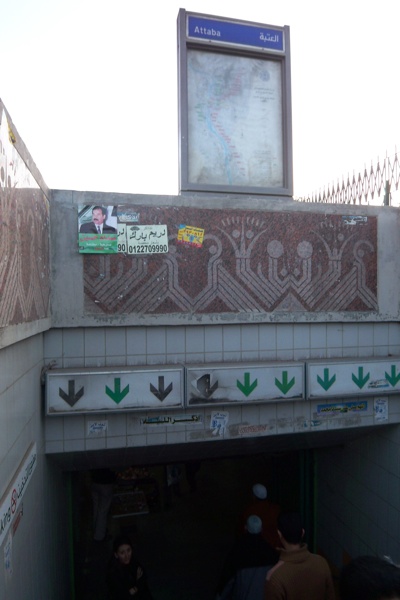It’ll be interesting to see whether the IHT hits Cairo newstands (has hit the newsstands? when does the print edition come out?) with a Michael Slackman piece intact. The article is more than a little critical of the Egyptian regime and of Condi’s support for it, and, while it is posted on the
IHT and
NYT websites, it will give the boys down at the Ministry of Info no great pleasure if they are told they have to let it through here.
Cairo: In the days before Secretary of State Condoleezza Rice met with officials in Egypt, the news media here were filled with stories detailing charges of corruption, cronyism, torture and political repression.
And Slackman then fills out his lead: police torture on video, contaminated blood being distributed, journalists getting arrested. He gives Ibrahim Eissa space for a quote on regime duplicity and political tensions, lets Hafez Abou Saada say the usual, and runs through a short list of the kind of reforms instituted since 2005 (back when Condi was making those huffy puffy noises that sounded to some like criticism of beating protestors and fixing elections):
Since then, Egypt’s government has piled up a long list of repressive actions, including ordering the police to block people from voting in parliamentary elections; delaying local elections by two years; imprisoning an opposition leader, Ayman Nour, on charges widely seen as politically motivated; battling with judges who have demanded oversight of elections; and imprisoning Talaat el-Sadat, a member of Parliament and the nephew of President Anwar el-Sadat, for a year in a military jail after he criticized the armed forces on television.
And he twists it closed nicely at the end, juxtaposing the experience of some Wafd members who tried to do something about sewage in their village (you guessed it, friendly visits from security) and Condi’s latest public message to Egyptians:
“I especially want to thank President Mubarak for receiving me and for spending so much time with me to talk about the issues of common interest here in the Middle East,” Ms. Rice said. “Obviously the relationship with Egypt is an important strategic relationship — one that we value greatly.”
Thanks for clearing that up Condi.
The depressing part, however, is the point that Slackman raises in the middle of his article. Shalit’s still walled up in little cell under Gaza somewhere and Fatah and Hamas are going at it like a bunch of well-armed soccer hooligans. So what does Washington have to gain these days in exchange for its complicity in the very public human rights violations of the Mubarak regime? Are they anticipating an imminent need to outsource the questioning of Gitmo releasees to the Lazoughly Interrogation Company?
Ultimately, Condi’s stance looks at best like knee-jerk retrenchment in the face of the utter failure, and at worst like somebody taking comfort in the arms of like-minded friends.
Politics doesn’t always make strange bedfellows, it seems.
